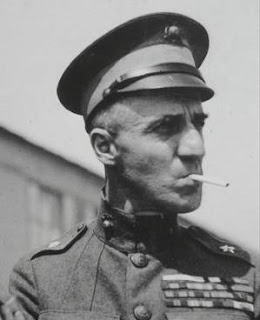

Some even suggested Butler acted like a military dictator, even charging that he inappropriately used active-duty Marines in some of his raids. Butler frequently swore in his radio addresses, causing many citizens to suggest his behavior, particularly his language, was inappropriate for someone of his rank and stature. Many felt that he was being too aggressive in his tactics and resented the reductions in their civil rights, such as the stopping of citizens at the city checkpoints. The reports praised the new uniforms, the new programs and the reductions in crime but they also reflected the public's negative opinion of their new Public Safety director. The press began reporting on the good and the bad aspects of Butler's personal war on crime. Other changes included military-style checkpoints into the city, bandit chasing squads armed with sawed-off shotguns, and armored police cars. He established policies and guidelines of administration, and developed a Philadelphia police uniform that resembled that of the Marine Corps. He implemented programs to improve city safety and security. In one instance he made a statement that he would promote the first officer to kill a bandit and stated, "I don't believe there is a single bandit notch on a policeman's guns in this city, go out and get some." Although many of the local citizens and police felt that the raids were just a show, the raids continued for several weeks.

Although he was effective in reducing crime and police corruption, he was a controversial leader. More zealous than he was political, he ordered crackdowns on the social elite's favorite hangouts, such as the Ritz-Carlton and the Union League, as well as on drinking establishments that served the working class. In addition to raiding the speakeasies, he also attempted to eliminate other illegal activities: bootlegging, prostitution, gambling and police corruption. Within 48 hours of taking over, Butler organized raids on more than 900 speakeasies, ordering them padlocked and, in many cases, destroyed. He replaced corrupt police officers and, in some cases, switched entire units from one part of the city to another, undermining local protection rackets and profiteering. He began his new job by assembling all 4,000 of the city police into the Metropolitan Opera House in shifts to introduce himself and inform them that things would change while he was in charge. At the request of the President, Butler served in the post from January 1924 until December 1925.

Coolidge contacted Butler and authorized him to take the necessary leave from the Corps. Kendrick asked President Calvin Coolidge to intervene. Philadelphia's municipal government was notoriously corrupt and Butler initially refused. Freeland Kendrick asked him to leave the Marines to become the Director of Public Safety, the official in charge of running the city's police and fire departments. At the urging of Butler's father, in 1924, the newly elected mayor of Philadelphia W.


 0 kommentar(er)
0 kommentar(er)
